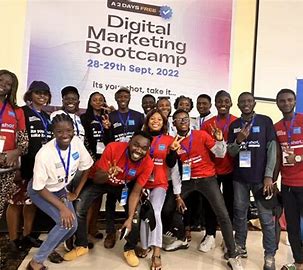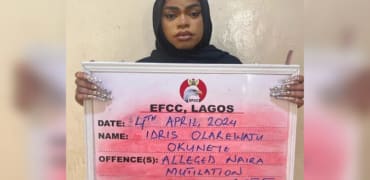Nigeria Partners with UNICEF to Train 20 Million Youth in Digital Skills by 2030
Nigeria Partners with UNICEF to Train 20 Million Youth in Digital Skills by 2030
By Achimi muktar
In what may be one of the most ambitious youth empowerment efforts in Nigeria’s history, the Federal Government has joined forces with UNICEF to train a staggering 20 million young Nigerians in digital skills by 2030—a bold step that could redefine the nation's future.
Vice-President Kashim Shettima made the announcement in Abuja on Tuesday during a high-level meeting with Mohammed Fall, the United Nations Resident and Humanitarian Coordinator in Nigeria. The gathering also included UNICEF Deputy Representative, Dr. Rownak Khan, and Celine Lafoucriere, Chief of the UNICEF Lagos Field Office.
“Beyond rhetoric, if we want to survive and thrive, we must empower our youth through digital means. That’s the only way forward,” the Vice President declared.
The program, under the Generation Unlimited Nigeria (GenU 9JA) initiative, is set to become a transformative platform for Nigerian youth between the ages of 10 and 24, helping them transition from learning to earning in a fast-evolving global digital economy.
With Nigeria’s population soaring past 230 million and a median age of just 17, the country stands at a critical crossroads. For Shettima, this demographic explosion is both a ticking time bomb and an untapped goldmine.
“It is an honour for me to serve as the Chairman of Generation Unlimited (GenU 9JA),” he said. “This platform provides a vista of opportunities for our young people.”
He stressed that Nigeria isn’t asking for charity—but equitable, sustainable partnerships that give young Nigerians the tools they need to compete on the world stage.
“We want a mutually beneficial relationship—one based on respect and shared interests,” he emphasized. “Our youth can trade their digital skills in the global market. Many already are.”
The GenU 9JA platform, launched in 2022, is already showing results. Over 10 million Nigerian youths have been reached, with 1,500 job linkages created so far. Backed by UNICEF and aligned with the Federal Government’s Renewed Hope Agenda, the initiative targets inclusivity, innovation, and empowerment.
UNICEF’s Deputy Representative, Dr. Rownak Khan, hailed Nigeria as a standout success story:
“Few countries globally have recorded the level of youth impact that GenU 9JA has achieved. This is one of our most successful youth empowerment programmes worldwide.”
The program is built on three key pillars:
Digital connectivity
Pathways from education to employment
Youth engagement and leadership
According to UNICEF Lagos Chief Celine Lafoucriere, collaboration and stronger alignment with national policies will be crucial to scaling the initiative to reach the 20 million youth target by 2030.
UN Resident Coordinator Mohammed Fall lauded the initiative as central to addressing youth unemployment, educational inequality, and digital exclusion.
“Under the Renewed Hope Agenda, youth-focused initiatives, skills, digital access, and employment are critical,” Fall said. “GenU is helping to drive those priorities.”
With the world increasingly powered by digital skills, Nigeria’s youth could soon be working for global tech giants—from their homes in Lagos, Kano, or Enugu.
“The digital space gives us the easiest window to get the youth engaged effortlessly,” Shettima added. “This isn’t just about jobs. It’s about dignity, purpose, and future.”


















